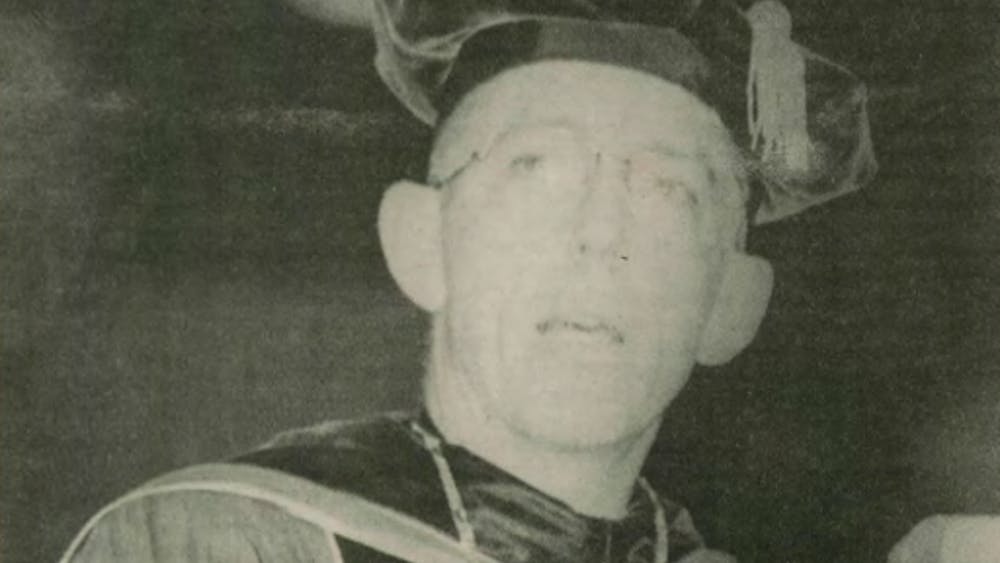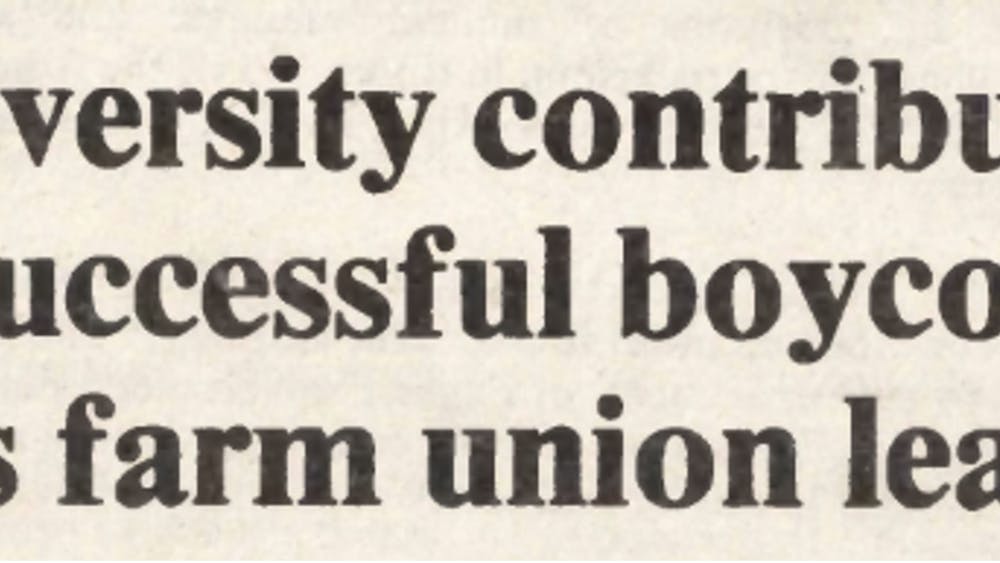In this episode of The Recap, host Gabrielle Penna shares stories covering President Biden's new relief package in response to the growing issues brought by COVID-19. Celebrating Women's History Month, women affiliates of Notre Dame are also featured; sharing their success stories, they offer inspiration to the future generations of women leaders.
[audio mp3="https://ndsmcobserver.com/wp-content/uploads/2021/03/1616084127-0a5c3d2cd1249b6.mp3"][/audio]
The Recap is available to stream on Anchor, Breaker, Google Podcasts, RadioPublic and Spotify.
Gabrielle Penna: From the News Department of The Observer, this is The Recap. I’m Gabrielle Penna, and I will be hosting this episode of The Observer’s news podcast — serving Notre Dame, Saint Mary’s, and Holy Cross.
To start this episode, let’s take a look at the COVID-19 statistics here on campus. As of Friday, March 19, 2021, there have been a total of 1,078 positive cases of the virus, of which 180 are estimated to be active. The University has administered a total of 102,954 tests since January 18, the vast majority of which are the result of routine surveillance testing. Notre Dame has been averaging 17 positive tests per day over the last seven days with an overall positivity rate of 0.8%.
In Holy Cross News, Emily Skidgel and Katie Cole won the student body election. They will assume president and vice president roles next semester, respectively.
Turning to the nation’s response to COVID-19, we look at the recent relief package signed into effect by President Biden.
Spencer Kelly: On March 11, 2021, exactly one year after the COVID-19 pandemic officially began, President Joe Biden signed a new $1.9 trillion relief package into law.
Unlike previous pandemic legislation like the CARES Act, the American Rescue Plan prioritizes socioeconomic relief rather than economic stimulus.
Gabrielle Penna: That was Spencer Kelly, staff writer.
Josh Kaplan, the director of undergraduate studies in the department of political science, commented on the relief package in an email interview.
Spencer Kelly: “It's an ambitious plan that deliberately tries to address economic disparities, at least in the short term, for people not reached by a general economic recovery,” Kaplan said.
Gabrielle Penna: The White House lists three main priority areas in the distribution of funds. The first involves COVID-19, vaccinating the public and reopening schools. One hundred sixty billion dollars will go to local governments to continue virus containment and expand vaccine rollout. K-12 schools will receive $130 billion to accomplish Biden’s goal of opening “the majority of K-8 schools within the first 100 days of his administration,” which ends April 30.
The second priority area is “immediate relief” for families and includes the much-anticipated stimulus checks. The income qualifications are lower than before, but the amount of money has increased to $1,400.
The third bucket of funding will go to local communities, with $360 billion in emergency aid going to local governments. Over $50 billion in aid will be distributed to small businesses, with an additional $25 billion for small to medium-sized restaurants.
Spencer Kelly: Over the past year, there have been nearly 30 million COVID-19 cases in the United States and over 530,000 American deaths. At Notre Dame, there have been 2,934 cases this school year. However, as President Biden said in a primetime address last Thursday, there is light at the end of the tunnel, and the American Rescue Plan aims to facilitate an end to this pandemic.
Gabrielle Penna: President Biden ended this address leaving American’s hopeful. He said, “Finding light in the darkness is a very American thing to do. In fact, it may be the most American thing we do.”
Now let’s transition to what the month of March is celebrating — women’s history. This week, staff writer Isabella Laufenberg interviewed several women across Notre Dame’s campus to hear about their journey to success and get advice for younger women.
Marianne Cusato, who received her undergraduate Bachelor of Architecture and Masters of Business Administration here at Notre Dame, spoke about some of the struggles she faced as a result of her gender. Cusato encourages young women to try to overcome their insecurities and understand their capabilities.
Marianne Cusato: Even in several of my students, I see patterns of the women, staring down at their feet when they talk or apologizing before I've even arrived at their desk for a crit — there's an apology, or they're whispering. As a woman, we need to stop doing all of that. You need to stand up; you need to make eye contact, even if you're a little nervous about what you're presenting. You know, there is a time and a place for self-deprecation, and it's an important layer of how we communicate; It can take the pressure out of a room, but it should not be the first thing you do. So, if you want to be respected, you have to start by respecting yourself. And if you don’t respect yourself, no one is going to respect you.
Gabrielle Penna:Kaitlin Wowak, who graduated from the University of Florida at age 19 before attending Penn State for her Ph.D., stressed the importance of having multifaceted women for young girls to look up to, specifically in terms of striking a good family-work balance.
Kaitlin Wowak: I mean I think that it's so important to have role models that have female role models that have kids as well because I think sometimes women often think ‘Okay, well, if I want to make partner in a firm or if I want to get tenure if I want to become, you know, a higher up in a consulting firm or whatever, I have to sacrifice having kids in order to do so.’ And I think, you know, you've got to learn to do both because you're gonna look back and say, ‘Oh, I wish I would have had kids’ or ‘Now I'm too old to do it’ but just take one day at a time, and you can accomplish everything.
Gabrielle Penna: That’s it for this episode of The Recap. Thanks for listening. Join us weekly for summaries of the major headlines on Notre Dame, Saint Mary’s and Holy Cross’ campuses. Thank you to news writers Spencer Kelly and Isabella Laufenberg. This has been Gabrielle Penna for The Observer.
Music by Ryan Neff
Read More
Trending









